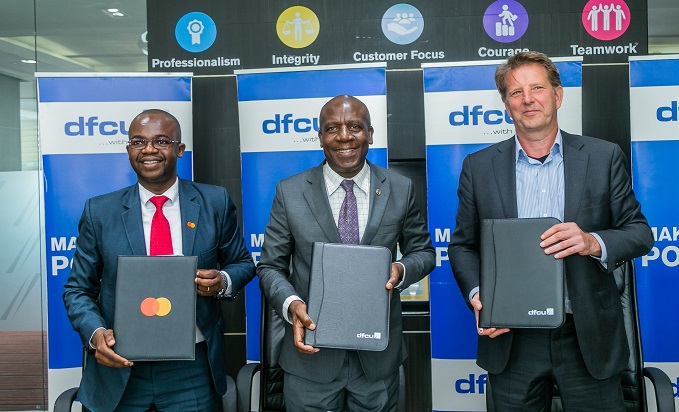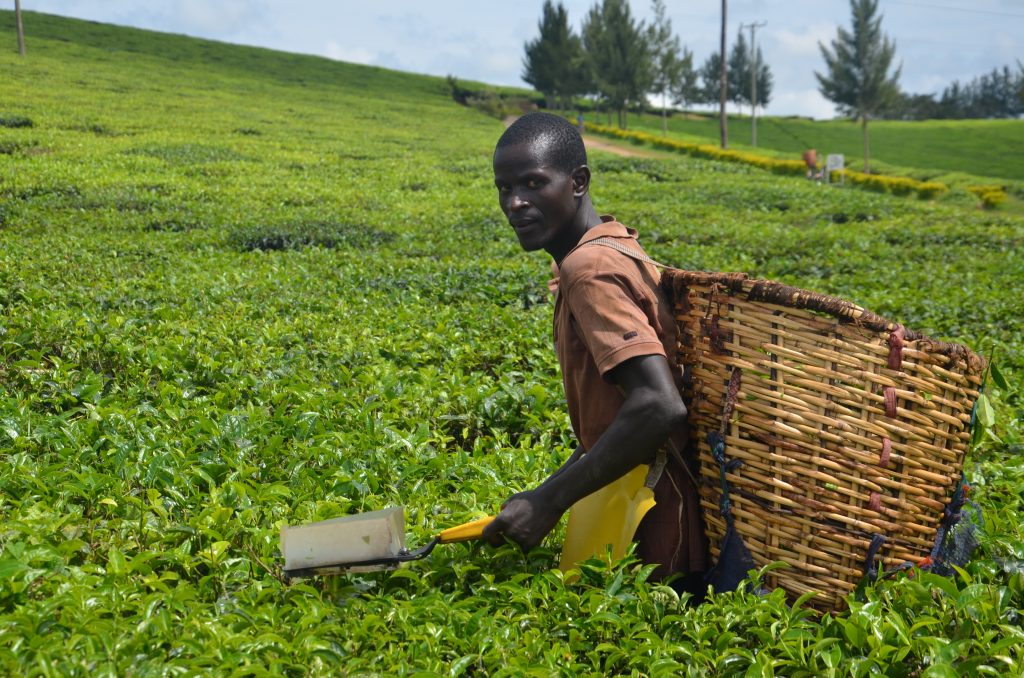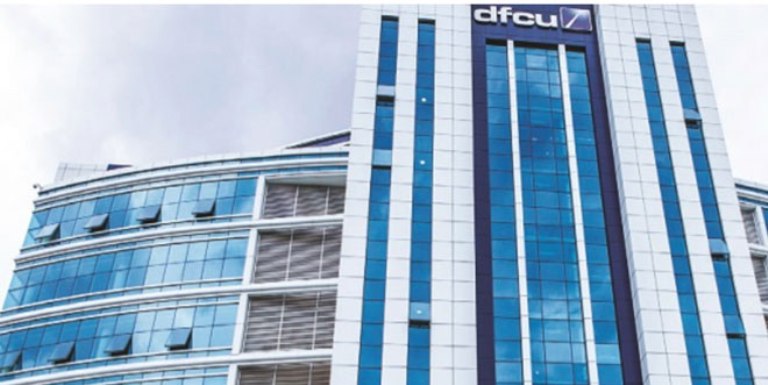Charles Mudiwa (Centre), Chief Executive Officer, and Managing Director of dfcu Bank in a group photo with Mastercard and Rabo Partnerships bosses after inking the partnership deal
dfcu Bank, Mastercard, and Rabo Partnerships have announced a strategic partnership aimed at digitalizing the agricultural ecosystem in Uganda. This collaboration aims to uplift smallholder farmers and other agricultural value chain actors by enhancing their access to markets and credit, thereby improving their livelihoods.
Currently, farmers and other actors in the agricultural sector face numerous challenges within the manual, cash-based ecosystem in which they operate. Due to limited access to markets and a lack of financial history, farmers often struggle to obtain fair pricing and secure credit. Additionally, cooperatives and off takers are impeded by inefficiencies and a lack of transparency.
To address these critical issues, Mastercard, dfcu Bank and Rabo Partnerships are joining forces to provide the innovative Farm Pass platform and tailored financial services to Uganda’s agricultural ecosystem. By registering on the platform through a network of agents, farmers will gain access to increased buyer opportunities for their crops and fit-for-purpose credit products that enhance productivity and income.
dfcu Bank, equipped with digital tools, processes, and insights, will extend financial services to farmers and farmer organizations that were previously difficult to reach, thanks to the power of digitization.
Farm Pass is built upon Mastercard’s acclaimed Community Pass platform, an interoperable digital platform that seeks to provide access to critical services to underserved, remote, and frequently offline communities. Consequently, with a common digital identity, these communities can benefit from other services in areas including health, education, and commerce, utilizing the same technology. With over 2 million farmers already onboarded across Africa, Mastercard aims to register 15 million farmers by 2027.
Rabo Partnerships is a wholly owned subsidiary of Rabobank, the leading global cooperative bank in the food and agriculture finance space. Rabo Partnerships enriches partner Financial Institutions by providing knowledge, networks, digital scaling solutions, enabling blended finance solutions and investments. Since 1989 it has spurred financial inclusion, rural development, and access to financial services in agricultural sectors in Africa, LATAM and Asia by collaborating with local banks. Rabo Partnerships has developed an especially strong footprint across Africa by partnering with financial institutions such as dfcu Bank. Through the Agriculture Exchange offering Rabo Partnerships aims to unlock over USD 1 billion in loans to smallholder farmers worldwide. Rabo Partnerships’ longstanding track record and close relations to partner banks combined with the expertise of partners such as Mastercard, on the digitalization of agri value chains, we can unlock financial services at scale for the Smallholder Ecosystems.
This five-year program aims to bring efficiency and transparency to the agricultural sector through digitalization. The initiative holds the potential to bridge the gap that currently excludes farmers and value chain actors from the benefits of digitization, presenting both a commercial opportunity and a vital development need.
dfcu Bank will drive the program in the Ugandan market and lend to value chain actors while Mastercard will provide the Farm Pass platform as part of its Community Pass suite, and Rabo Partnerships will offer their expertise and capabilities in food and agriculture banking. Together, they will work alongside local partners to reach out to farmers, ensuring their seamless onboarding onto the platform for the benefit of all stakeholders within the agricultural value chain.
“dfcu Bank has a longstanding commitment to serving Ugandans, and this collaboration with Mastercard and Rabo Partnerships aligns perfectly with our purpose. We are excited to leverage the digital tools and expertise provided by this partnership to drive financial inclusion among underserved segments in Uganda, ultimately unlocking a commercial opportunity that benefits both farmers and the agricultural industry,” said Charles Mudiwa, Chief Executive Officer, and Managing Director of dfcu Bank.
“As a leading global bank in the food and agriculture sector, Rabo Partnerships is dedicated to fostering financial inclusion among smallholder farmers, extending our reach beyond large agribusinesses. Through this partnership, we are excited to contribute our expertise and commitment to driving financial inclusion in agriculture, empowering smallholder farmers to thrive alongside their counterparts in the industry,” said David Gerbrands, Global Head of Agri and Banking advisory services and Inclusive Business Ventures at Rabo Partnerships.
Over the course of the next five years, the program aims to benefit 1.5 million smallholder farmers in Uganda by facilitating easier access to markets and formal financial services.
“Mastercard aims to register 30 million people to Community Pass, including 15 million in Africa, over the next five years. Through Farm Pass, our agriculture digital marketplace, our collaboration with dfcu Bank and Rabo Partnerships will deepen our engagement with millions of farmers in Uganda, build their digital track record, and strengthen them as micro and small businesses,” said Daniel Huba, Vice President of Sub-Saharan Africa Market Development for Community Pass at Mastercard.
This partnership will revolutionize the agricultural landscape in Uganda, bringing unprecedented efficiency, transparency, and financial inclusion to farmers and value chain actors. The program will mark the beginning of a transformative journey towards sustainable livelihoods and economic growth within the agricultural sector.




